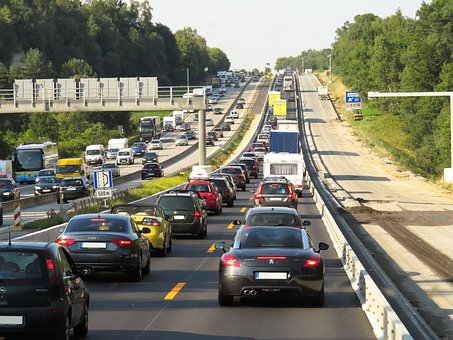U.S. EPA Solicits Input on Phase 3 Emission Limits for Heavy-Duty Engines, Vehicles

The U.S. Environmental Protection Agency is considering revisions to greenhouse gas emission limits for heavy-duty vehicles, according to an Aug. 15 press release. The proposal marks the third phase of a comprehensive plan designed to reduce emissions from the transportation sector. The agency invites small businesses to take part as small entity representatives on an advocacy review panel. The discussion will focus on the agency’s rule to establish a new phase of GHG obligation for trucks and heavy-duty engines that would take effect in the model year 2030. Manufacturers of heavy-duty engines, vehicles, and chassis may be affected by this rule, as may secondary vehicle manufacturers who depend on incomplete chassis purchased from chassis manufacturers.
In 2011, EPA adopted its first GHG regulations for heavy-duty vehicles. In the first phase, the new compliance and certification program used computer simulation rather than emission and fuel efficiency testing to calculate vehicle CO2 emissions and fuel efficiency. The rule also adopted short-term provisions that addressed the impact on small businesses. The Phase 1 standards for heavy-duty vehicles became effective in Model Year 2014.
The agency adopted the phase 2 rule in 2016, setting more stringent CO2 standards as well as limits for hydrofluorocarbons, methane, and nitrous oxide that became effective in the model year 2021. Additional fuel-saving technologies were also included in the Phase 2 rule’s emission simulation model.
In the third phase, the heavy-duty vehicle GHG emission boundaries will be revised while retaining the same certification and compliance mechanism that already exists. The vehicle emission standard will be stricter starting with the model year 2030 because of revised projections for GHG emission reduction technologies. As part of its new standards, the EPA will take into consideration the significant role that zero-emission vehicle technologies play in reducing pollution from heavy-duty vehicle fleets.
Representatives from the Office of Management and Budget, Small Business Administration, and the agency will serve on the Panel. Selected small entity representatives will advise and recommend the panel regarding the impact on small businesses. The agency solicits self-nominations directly from small businesses. Self-nominations must be received by Aug. 29.
EnerKnol Pulses like this one are powered by the EnerKnol Platform—the first comprehensive database for real-time energy policy tracking. Sign up for a free trial below for access to key regulatory data and deep industry insights across the energy spectrum.
ACCESS FREE TRIAL